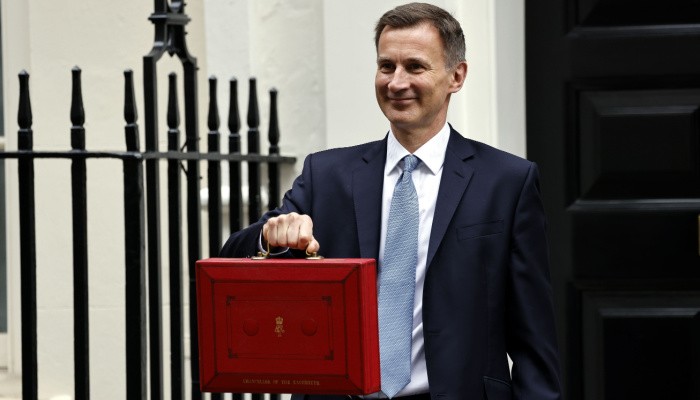The most recent and second ever Tax Day (Tax Administration and Maintenance Day) took place on 27th April 2023 – an event that is becoming a fiscal calendar fixture following the Spring Budget. This day focuses on technical proposals for future tax policies.
This April, the UK government published a series of policy updates and consultation announcements, which primarily aim at modernising the current tax system and reducing the tax gap (the amount of tax that should be paid to HMRC that isn’t actually being paid).
Here is a summary of the steps the government is taking to update the tax system over the next couple of years, and who may be affected by these key areas.
Definite changes for parents and repayment agents
While most proposals related to ongoing or upcoming consultations on potential system changes, there were some concrete changes announced. One of these is the requirement for repayment agents to register with HMRC by 2nd August 2023, to reduce speculative repayment claims.
Another is the acknowledgement that not claiming Child Benefit – perhaps due to the High Income Child Benefit Charge – may have a negative impact on State Pension eligibility for some parents. The government intends to resolve this by allowing eligible parents to receive retrospective National Insurance credits, though they have yet to announce how this will be actioned.
Consultations on simplifying the tax system
The primary tax simplification consultations that may affect the average taxpayer involve the Help to Save scheme and off-payroll working rules. Firstly, the government’s scheme to help low-income savers earn a 50% bonus is running until April 2025, but a consultation is being launched on reforming it to make the scheme simpler and more accessible for the target group.
Secondly, the government is also publishing a technical consultation on potential changes to the legislation for off-payroll working. This would allow HMRC to set off payments by a worker or the worker’s personal service company against the deemed employer’s PAYE liability, reducing the risk of taxes and National Insurance contributions being paid twice on the same income.
Many other miscellaneous consultation announcements for more niche areas of tax policy include:
- Reforming information and data collection and management to improve tax administration
- Modernising Stamp Taxes on Shares with a digitalised system and single tax considerations
- Improving customs processes for exported post and parcels containing low-value goods
- Updating cross-border taxes for diverted profits, transfer pricing, and permanent establishments
- Amending tax rules for the lending and staking of crypto-assets in decentralised finance
- Clarifying VAT Terminal Markets Order (TMO) rules for the treatment of exchange-traded commodities and bringing the UK Emissions Trading Scheme within its scope
- Introducing a new type of Reserved Investor Fund (RIF) for holding real estate
- Looking into a ‘sandbox’ pilot testing approach for HMRC to test system changes
Some of these consultations have already been published, while others have yet to be launched.
Consultations on tackling the tax gap
There are also several consultations aimed at tackling the non-compliance responsible for the tax gap. The main concerns that may affect small businesses include regulatory scrutiny of umbrella companies and further reform of the Construction Industry Scheme (CIS).
A consultation on a reform package for the construction industry has been published, considering adding VAT to the list of taxes for Gross Payment Status tests (which allow subcontractors to get payments without withholding taxes), and taking measures to reduce their administrative burden.
The government is due to release a response to their previous call for evidence on umbrella companies in 2021, with a further consultation on regulating these companies to address non-compliance and prevent their usage for tax fraud purposes.
Similarly, another consultation will be released on the introduction of criminal offence laws for the promotion of tax avoidance schemes, which will clamp down on non-compliance after receiving legal notices and speed up the disqualification of company directors involved in tax avoidance.
Other consultations relating to the government’s aim to close the tax gap include:
- Ensuring Employee Ownership Trusts (EOT) target reliefs appropriately to incentivise employee ownership business models while preventing their usage in unintended tax planning
- Modernising business tax debt collection to enhance HMRC’s powers to seize goods from third party premises, recover monies from digital wallets, and require security deposits
- Reviewing taxation rules for charities to prevent the abuse of charity tax reliefs, including improvement of the Gift Aid system with better digital administration
- Evaluating Plastic Packaging Tax and considering a mass balance approach to calculating recycled content proportions in chemically recycled plastics
Again, some of these consultations are already underway, while others will be published soon.
What are the next steps?
Individuals and businesses who could be affected by the changes resulting from these consultations should consider whether they want to take part in the consultations themselves, and what the implications may be if the government follows up on their suggested policy changes. You can find a summary of Tax Day announcements and consultations on the government website.
While the proposals mentioned are subject to amendments of the Finance Act before possibly coming into effect in the next few years, they do underline the importance of self-employed individuals and business owners alike ensuring that they are totally tax compliant in all areas.
To this end, you might want to arrange professional assistance with your tax management or bookkeeping
and PAYE
services, which the team here at GBAC is well qualified to provide. Whether you need help with Income Tax or VAT returns, get in touch with our accountants in Barnsley by phone or email to find out how we can assist you and your business.
